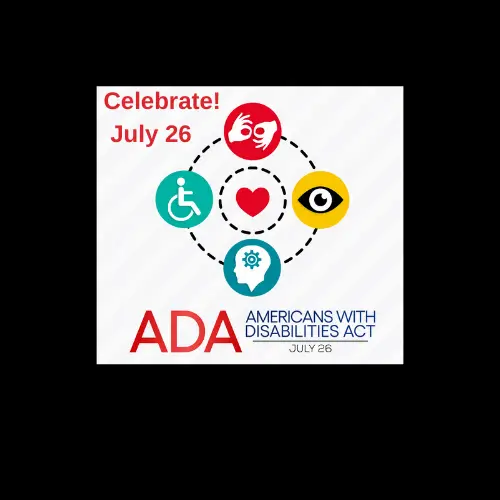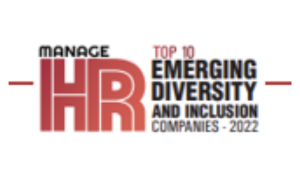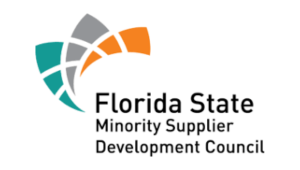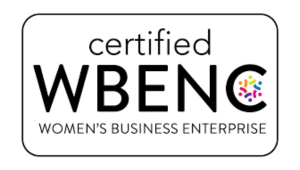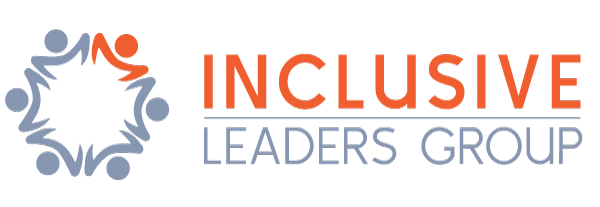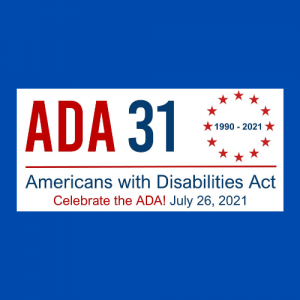
By Brian L. Hughes
Today, Monday, July 26, 2021 celebration and inspiration rule the day as we mark the 31st Anniversary of the signing of The Americans with Disabilities Act! Inclusive Leaders Group and all disability advocates recognize this landmark event and the important work to promote equal opportunity for people with disabilities.
Workplace Disability Inclusion and Belonging
Employers have long been drivers of social change. Across the globe, companies have begun acknowledging vital challenges and injustices such as climate change and pay gaps. Diversity and inclusion is one such defining issue, and, although some progress has been made towards equality across boundaries of gender, race, and sexual orientation, one aspect of D&I is too often neglected: disability.
The UN Convention on Rights of Persons with Disabilities defines those for whom it advocates as “people who have long-term physical, mental, intellectual or sensory impairments which in interaction with various barriers may hinder their full and effective participation in society on an equal basis with others.”
Disability inclusion at work is about more than hiring people with disabilities. An inclusive workplace values all employees for their strengths. It offers employees with disabilities — whether visible or invisible — an equal opportunity to succeed, to learn, to be compensated fairly, and to advance.
The Disability Inclusion Essentials™ – An ILG Virtual Learning Experience
Inclusive Leaders Group (ILG) offers The Disability Inclusion Essentialst™, a course that helps organizations learn how to make disability inclusion an explicit part of your overarching business strategy. Starting with a broad overview of the role HR professionals play in addressing this issue, you will maximize workplace disability inclusion and minimize disability discrimination across the employment process.
Discussions are enthusiastically led by ILG Senior Consultant and Facilitator Ashley Oolman. The modules focus on the importance of inclusion for people with disabilities, employers, and the business case for aligning disability inclusion with a company’s strategic human capital, diversity, and customer-service imperatives.
Ashley Oolman transforms workplaces through accessibility tools, evidence-based best practices, and compliance assessments. From large corporations to small businesses, she guides strategic inclusive hiring and retention initiatives to diversify talent and advance disability employment.
She is also African American Leadership Forum (AALF) Fellow. The African American Leadership Forum (AALF) is a cross-sector network of Black Thought Leaders and Influencers whose mission is to foster a just society that works better for all Americans by addressing disparities in Economic Development, Health & Wellness, Education, and Family & Culture in the Black community, and supporting and developing the leadership capacity of Black leaders across Minnesota.
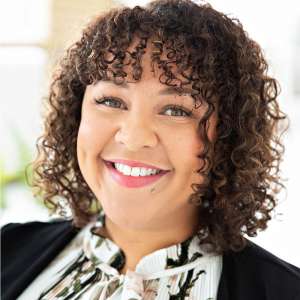
We asked Ashley about the value of a disability-inclusive workplace and she offered success practices from her extensive experience.
- Why should U.S. employers care about creating a disability-inclusive workplace?
Many reasons. First and foremost employers undoubtedly already have disabled employees working for them. To ensure they are providing equal opportunities, employers have to address things like inaccessibility and bias in their workplaces. In addition to existing employees, making workplaces less biased and more accessible benefits all employees. Time after time we see positive outcomes in the workplace correlated with making intentional changes to both policy and practice as well as culture and leadership.
- What does it mean to be disability-inclusive?
Being disability-inclusive means you are intentionally doing the work to address the ways ableism has influenced your company from how you hire, to how you plan events. It’s beyond checking a box by hosting a training or two. It’s committing ongoing attention and actions necessary to run your business differently for the long haul.
- What skillsets do employees with disabilities bring to businesses?
The same skills employees without disabilities bring, with the addition of a variety of survival skills acquired from existing and competing in environments that were not designed for us. Think of the level of resilience, problem-solving, focus, etc. that it takes to have to overcome challenges constantly because our communities (and workplaces more specifically) were not created to work for everyone.
- Where can employers find job candidates with disabilities?
Rather than look for special places to “find” people with disabilities, I encourage the businesses I work with to make their processes more accessible so candidates with disabilities can come to them. Essentially, committing to ensure all touchpoints with candidates and employees are accessible is the more sustainable approach.
- Why is disability accessibility and inclusion training important for HR and department heads throughout a company?
Two reasons. First disability history, rights, culture, and contributions are not taught or highlighted in most places. This means most people don’t realize how little they know about disabilities, folks’ rights, or even simple terminology to avoid. The second reason is that disability inclusion is grossly lacking in comparison to other identity groups. We have grown accustomed to not being led by, taught by, or hired by people with disabilities. That is a problem. Personal bias is a tremendous barrier that has to be disrupted for companies as a whole to do better in both workplace policy and practice.
Ashley has presented at the Workplace Revolution 2021 event, part of the Forum on Workplace Inclusion® – The Forum expands minds sets, skill sets, for workplace inclusion through events and programs, media platforms, and conferences. Ashley earned an MBA with a concentration on human resource management and a BA in psychology with a minor in human development and family studies. She is committed to inclusion as a means to advance human rights for all people, in all walks of life. She brings her leadership style, DEI expertise, and passion to The Disability Inclusion Essentials™ and other Inclusive Leaders Group (ILG) custom training programs in 2021.
For more information about Making the Business Case for Disability Inclusion, please see our e-guide in the thought leadership section of our site.

